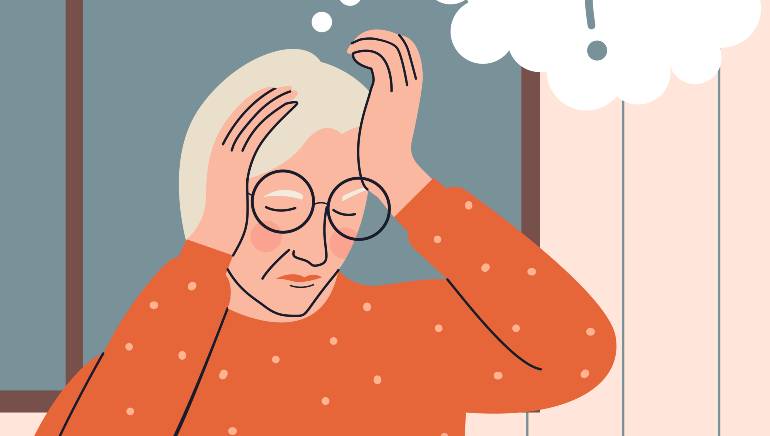Dementia describes a group of symptoms affecting memory, thinking and social abilities severely enough to interfere with your daily life. It isn’t a specific disease, but several different diseases may cause dementia.
We all know that dementia now reaches epidemic proportions worldwide & it is very normal to become concerned with our old parents or any senior loved ones being forgetful. However dementia is more than forgetfulness. So we have made a list of the early signs of dementia to understand if or when your family might need to seek out a healthcare professional’s guidance.
Early Signs & Symptoms of Dementia
Dementia occurs when nerve cells in a person’s brain stop working and is a neurodegenerative condition that involves the impairment of cognitive skills and memory.
There are 10 typical early signs and symptoms of dementia. For a person to receive a diagnosis, they would usually experience two or more of these symptoms, and the symptoms would be severe enough to interfere with their daily life.
(1) Subtle short-term memory changes
Memory loss is a common symptom of dementia. A person in the early stages of dementia will often forget things that he or she has recently learned, or forget important dates and events or forget where they left an item.
Sometimes an older person may be able to remember events that took place years ago but not what they had for today’s lunch.
(2) Difficulty in solving problems
It seems very difficult to manage budget when adding up the numbers or find it difficult to remember the favourite recipes. Things may take longer than they used to as processing problems and solving them will take more energy.
(3) Confused Speech
In the early stages of dementia, it becomes difficult to follow or join a conversation. They have to struggle in recalling names and with the vocabulary.
(4) Being confused about time or place
Dementia can make it hard to judge the passing of time. People may also forget where they are at any time. They may find it hard to understand events in the future or the past and may struggle with dates.
(5) Difficulty doing familiar tasks
A subtle shift in the ability to complete familiar tasks may indicate early signs of dementia. They find it difficult in doing regular and familiar tasks such as operating a computer, getting to a familiar location, forgetting rules of games, etc. They may also struggle to learn new things or follow new routines.
(6) Challenges understanding visual information
People may have trouble seeing certain colors or contrast, causing issues with driving. It also makes it hard to read or judge distances.
(7) Withdrawal from socializing
They become uninterested in socializing with other people, whether in their home life or at work. They take very less interest or not pay attention when others are speaking to them.
(8) Changes in personality or mood
People in early stages of dementia may experience mood swings, can become anxious, fearful, paranoid and easily upset.
(9) Being repetitive
This is very common and is due to memory loss. They may repeat the tasks several times such as shaving or repeat the same questions in a conversation even after they are answered multiple times.
(10) Misplacing items
A person with dementia’s early stages may put things at some place and may find it difficult retracing it. And this increases with the progress in dementia can lead the person to accuse others of theft.
SEE ALSO: Caring for People Living with Dementia, during the COVID-19 Pandemic
When to see a doctor?
Memory problems itself doesn’t mean dementia, because they are normal part of aging. Still, you shouldn’t ignore the symptoms. If you have noticed any of these above signs and symptoms in your old loved ones, seek a neurologist who can examine the conditions and determine whether the symptoms result from dementia or another cognitive problem.

